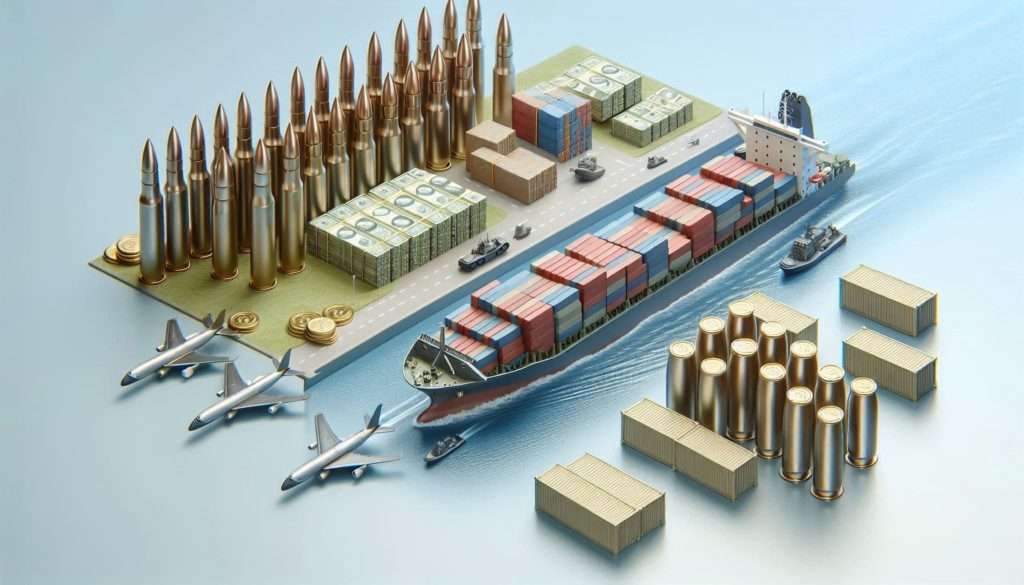In the realm of firearms and ammunition, understanding regulations is vital, especially for shipping ammunition across borders. The Philippines has its own regulations for ammunition shipment, dictated by Republic Act No. 10591. This law governs ownership, possession, and transportation of firearms and ammunition.
Under this act, individuals and entities must obtain permits and licenses from the Philippine National Police (PNP) Firearms and Explosives Office (FEO) before engaging in activities involving firearms and ammunition, including shipping.
Shipping Ammunition & Philippine Regulations
To start the shipping process, understanding the legal framework is essential. The Comprehensive Firearms and Ammunition Regulation Act outlines laws regarding firearms and ammunition.
Subscribe to the Ex-works24/7 newsletter
Shipping Ammunition: Step-by-Step Guidance
Ensure Compliance: Start by complying with relevant laws and obtaining necessary permits and licenses from PNP-FEO.
Packaging and Labeling: Securely package and label ammunition for shipping, using appropriate containers to prevent damage or leakage. Label each package with necessary information such as quantity, caliber, and hazard warnings.
Documentation: Prepare all necessary paperwork, including permits, licenses, and invoices, ensuring accuracy to avoid delays during customs clearance.
Choose a Reliable Carrier: Select a reputable shipping carrier experienced in handling hazardous materials, ensuring compliance with regulations and safety standards.
Customs Clearance: Prepare for customs inspections and provide requested documentation promptly to facilitate smooth processing of the shipment.
Tracking and Monitoring: Utilize tracking services to monitor shipment progress, staying informed about any updates or delays.
Shipping Ammunition and the Shipping line
Shipping lines may hesitate to ship ammunition on board for several reasons:
1. Safety Concerns: Ammunition is considered hazardous material due to its potential for combustion or explosion. Shipping lines prioritize safety for their crew, vessels, and other cargo, and may be hesitant to carry items that pose a risk.
2. Regulatory Compliance: Shipping ammunition involves navigating a complex web of international, national, and local regulations. Shipping lines may be wary of the legal implications and regulatory requirements associated with transporting ammunition, including permits, licenses, and documentation.
3. Insurance Considerations: Insuring cargo containing ammunition can be challenging and may come with higher premiums due to the increased risk. Some shipping lines may be hesitant to carry ammunition due to concerns about insurance coverage and liability in the event of an incident.
4. Operational Disruptions: Transporting ammunition may disrupt standard operational procedures for shipping lines. Special handling requirements, additional security measures, and restrictions on routes or ports of call could impact efficiency and profitability.
5. Reputation Management: Shipping lines may be concerned about the potential negative impact on their reputation and public image associated with transporting hazardous materials like ammunition. They may prefer to avoid controversy and scrutiny by avoiding such cargo altogether.
6. Legal and Regulatory Uncertainty: Inconsistencies or ambiguities in regulations regarding the transportation of ammunition may create uncertainty for shipping lines. Without clear guidelines and protocols, they may err on the side of caution and refrain from accepting ammunition shipments.
Overall, the decision of whether to ship ammunition on board involves weighing the risks, legal considerations, operational implications, and potential impact on reputation. Many shipping lines opt to avoid transporting ammunition altogether to mitigate these concerns and prioritize safety and compliance.
Conclusion: Shipping ammunition from the Philippines demands careful planning and adherence to regulations. Understanding laws, following procedures, and collaborating with reliable partners ensures safe and compliant transportation. Compliance with regulations is crucial for promoting safety and security in firearms and ammunition transportation, contributing to community well-being and industry integrity.




